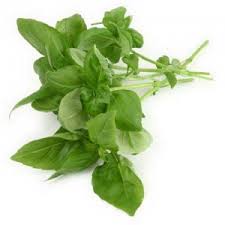
Tulsi (ocimum tenuiflorum), otherwise known as Holy Basil, is a common superfood ingredient in Sarvaa Superfood’s products. In India, the herb Tulsi, sometimes referred to as the “Queen of Herbs” or the “Elixer of Life” has been revered for thousands of years for its potent healing qualities. In the ancient holistic tradition of Ayurveda, Tulsi is promoted due to its health enhancing, life prolonging, and disease preventing properties. Most recently many of these benefits have been scientifically verified by modern research as Tulsi contains a unique chemistry of compounds known as “phyto-chemicals.” These phyto-chemicals possess antioxidant, antibacterial, antiviral, adaptogenic, and immune enhancing properties that help support your body’s ability to handle stress and disease. Adaptogenic herbs such as Tulsi have been used for thousands of years in both Chinese and Ayurvedic medicine to promote an overall feeling of well being. Adaptagens are known to reduce the intensity and negative impacts of bodily stress caused by pollution, poor lifestyle habits, mental stress, emotional imbalance, and disease. Adaptogenic herbs rejuvenate and restore in that they restore the body's normal state of balance and equilibrium. Along with strengthening the body’s immune system and ability to handle stress, Tulsi is also known to promote longevity, heart and respiratory health, as well as aid in digestion and increased mental clarity.
Along with its many healing properties, Tulsi continues to be considered one of the most sacred plants in India. According to Hindu legends, the name Tulsi originates from the goddess known as Tulasi, who was one of Lord Krishna’s eternal consorts. The goddess Tulasi appears in the form of a plant that symbolizes purity and divine protection. Following a millennia of tradition, it is not uncommon for Indian residents to grow Tulsi in or around their home for religious purposes. According to ancient texts, Tulsi is known to help people become closer to the divine. Tulsi did not gain its familiar name of “Holy Basil” until it became traded among the Europeans, as even they recognized the plant as having sacred and holy qualities. You can now find Tulsi in almost every health food or supplement stores. Tulsi is traditionally taken as a tea or herb, although the oil may also be used in certain circumstances. When preparing teas or oils, only the leaves are used. The most popular way to consume Tulsi is in the form of an herbal tea that is sometimes blended with other herbs and spices.
In SuperGreens, for example, Sarvaa combines Tulsi with several other adaptogenic herbs and green superfoods to create a product that promotes the highest sense of well-being and overall health!
Sources:
images from organic india.com
